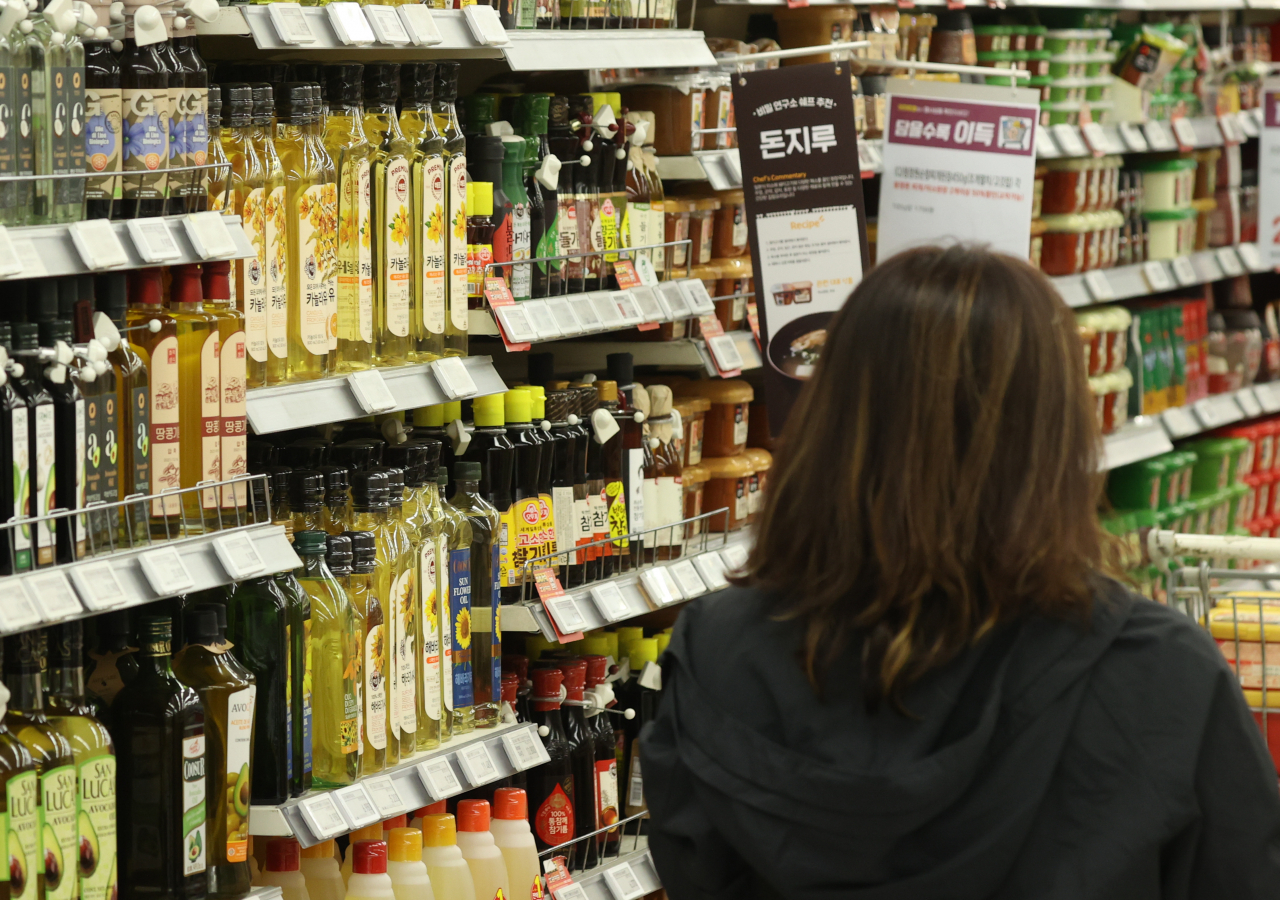|
A customer at a supermarket in Seoul on November 7 (Yonhap) |
Over the years, the average energy intake of Koreans has decreased. While carbohydrate consumption has decreased, protein consumption has increased with changes in eating habits.
According to the Korea National Health and Nutrition Examination Survey published by the Korea Disease Control and Prevention Agency, the average energy intake of Koreans per day was 2129 kcal for men and 1576 kcal for women in 2021. The numbers have declined consecutively since then. 2015.
Koreans are also consuming fewer carbs. The percentage of energy intake from carbohydrates dropped from 64.9% in 2012 to 59.4% in 2021.
By contrast, the percentage of energy intake from fats increased from 20.4 percent to 24.6 percent. Mean energy intake from protein was 16.4% for men and 15.5% for women.
The agency explained that the general diet of Koreans has changed over the years, with less reliance on the intake of grains such as rice, while meat consumption has increased.
The numbers appear to be a reflection of a low-carb, high-fat diet that has become popular in recent years among people trying to lose weight or seeking a healthier lifestyle.
The average grain intake per person in a day dropped from 299.1 grams in 2012 to 265.9 g in 2021, while meat intake increased from 113.9 g to 123.8 g in the same period.
The numbers show why Koreans’ rice consumption has declined over the years. The average consumption of rice per person in Korea has decreased in recent years.
According to separate data from Statistics Korea, an average South Korean consumed 56.9 kg of rice last year, 0.8 kg less than the previous year’s 57.7 kg. Rice consumption has decreased considerably compared to 1970, when the average consumption of rice per person was 136.5 kg.
Meanwhile, the intake of vegetables and fruits decreased by 38.7 g and 56.3 g, respectively.
The Ministry of Health and Welfare advised through the Dietary Reference Intake for Koreans in 2020 that the percentage of energy intake from carbohydrates should be between 55 and 65 percent, protein between 7 and 20 percent. percent and fat between 15 and 30 percent.
The annual survey is conducted to assess the health and nutrition status of Koreans, based on the National Health Promotion Law. It is carried out on 10,000 people aged 1 year and older, asking them to count the amount and variety of food they consumed the day before the survey.
By Im Eun Byel ([email protected])
(function() {
var _fbq = window._fbq || (window._fbq = []);
if (!_fbq.loaded) {
var fbds = document.createElement(‘script’);
fbds.async = true;
fbds.src=”https://connect.facebook.net/en_US/fbds.js”;
var s = document.getElementsByTagName(‘script’)[0];
s.parentNode.insertBefore(fbds, s);
_fbq.loaded = true;
}
_fbq.push([‘addPixelId’, ‘1440573646257323’]);
})();
window._fbq = window._fbq || [];
window._fbq.push([‘track’, ‘PixelInitialized’, {}]);
.
